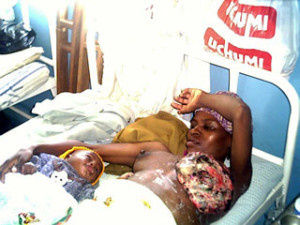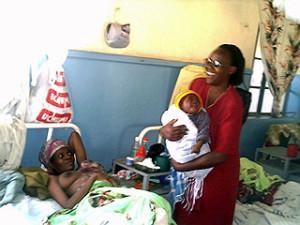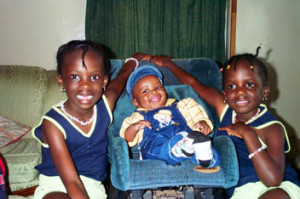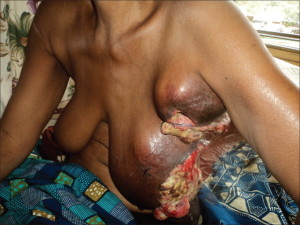Medical data from reputable organizations like World Health Organization (WHO), CDC, etc has shown that the highest mortality rates related to breast cancer is in third world countries, especially Africa.
However, other faster mass killers like Malaria and HIV has received unparalleled international attention in Africa, Thanks to organizations like Gates Foundation and others.Despite the high mortality of breast cancer and cervical cancer in Africa, cancer in general has not received the attention it deserves in Africa
While the cost of diagnosing and treating breast cancer is expensive, Cancer Free Women believes the man ion the mirror can make a positive impact in the lives of high risk African women
Looking up to The Gifted and Talented: Breast Cancer Mission Trips to Kenya, Africa.
Cancer Free Women will be conducting regular breast cancer related mission trips to Africa, starting with East African region. We appeal to medical practitioners from all over the world to volunteer in this region to: –
- Create breast cancer awareness
- Educate women about breast cancer and life saving Breast Self Exam (BSE) techniques.
- Diagnose breast cancer cases and educate local clinicians, doctors and nurses how to be proactive about breast cancer
- Train local surgeons on less invasive and potentially life saving surgical techniques
- Create a breast cancer awareness culture in youths that can be easily reached in boarding high schools and colleges
- Reinforce positive learning and foster continuity by offering free exchange programs. Teaching hospitals and universities willing to train African medical professionals are more than welcome.
- Identifying opportunities that can be exploited to create breast cancer awareness and promote breast health culture
Change the World for Ever!
Saving women lives, especially in Africa is guaranteed way to change and impact the world. Majority of bread winners in Africa are women. The most important society building block in Africa is a woman. Kids eat, go to school, etc mostly because of the presence of a woman. A potential breast cancer related death affecting a mother, almost always, mean end of family.
Will You Take a Mission Trip to Kenya, Africa?
You may underestimate your impact in African women lives. If your presence saved just 1 (one) woman life, think about how many generations you’ll have impacted.
““We make a living by what we get. We make a life by what we give.”
― Winston Churchill
“It’s not how much we give but how much love we put into giving.”
― Mother Teresa
Make that change

 The happiness of finally having a son was short-lived. Lucy’s fungating breast mass was growing bigger and bigger by the day. Her pain and suffering was becoming more and more intolerable. The mass became infected and need surgery though her health condition could not have allowed it. She could not have survived a surgery, if there was one available. Lucy was abandoned by her friends, family and lovers to die in the hospital. Meru Hospice was her new home. Doctors could not operate on her. Knowledge and resources were not there.
The happiness of finally having a son was short-lived. Lucy’s fungating breast mass was growing bigger and bigger by the day. Her pain and suffering was becoming more and more intolerable. The mass became infected and need surgery though her health condition could not have allowed it. She could not have survived a surgery, if there was one available. Lucy was abandoned by her friends, family and lovers to die in the hospital. Meru Hospice was her new home. Doctors could not operate on her. Knowledge and resources were not there. Baby Moses at 5 months old and was doing really well; he was looking bright and healthy. But it was becoming progressively difficult for Lucy to take care of him. No relative ever came to visit her. She is abandoned to die alone. She depends on relatives of neighboring patients to assist her wash her clothes, change and feed her baby.
Baby Moses at 5 months old and was doing really well; he was looking bright and healthy. But it was becoming progressively difficult for Lucy to take care of him. No relative ever came to visit her. She is abandoned to die alone. She depends on relatives of neighboring patients to assist her wash her clothes, change and feed her baby.



